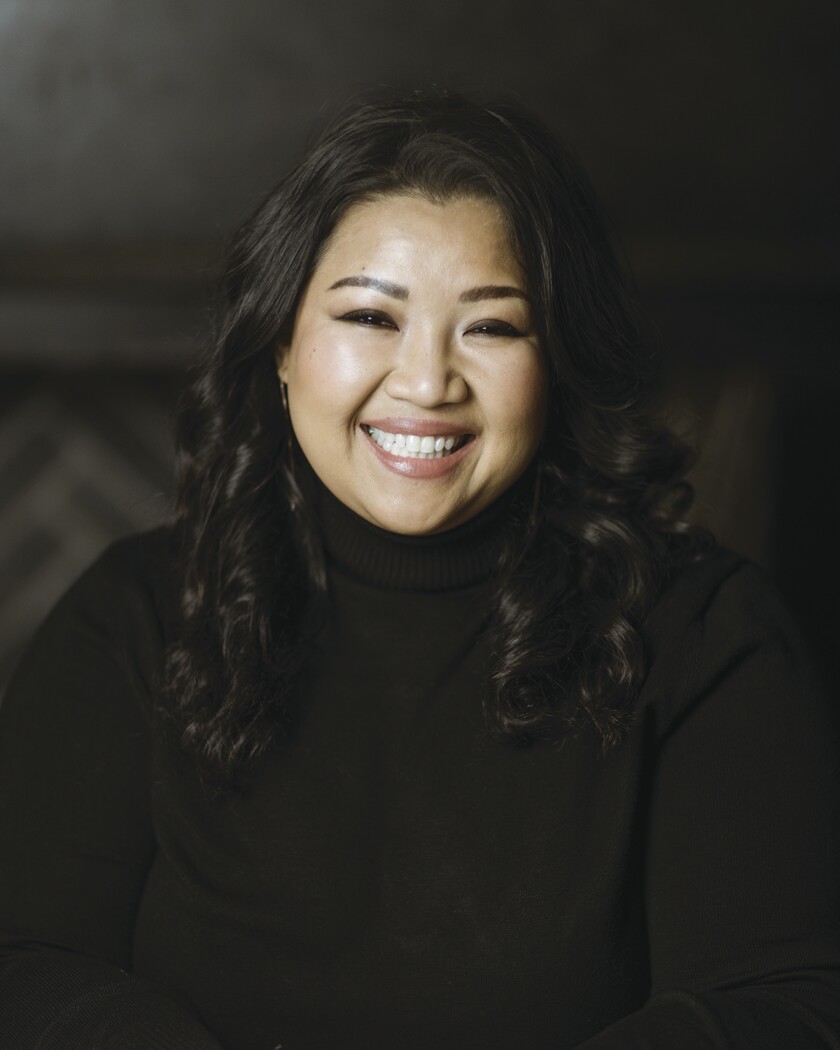Sokha Yous, Financial Wellness Counselor, Mayo Employees Federal Credit Union
Build that emergency fund.
“Everyone should aim to have 3-6 months’ worth of essential expenses saved in an easily accessible account, such as a savings account at your credit union or bank. For example, if your monthly expenses are $3,000, aim for at least $9,000-$18,000. This provides a cushion for unexpected expenses like medical emergencies or job loss.
Save and budget, automatically.
“Set up automatic transfers from your checking account to a savings or investment account. Many credit unions offer budgeting tools and apps to help track spending. For instance, use apps like Mint or your bank’s in-app budgeting features to set goals and monitor progress.”

Eric Funk, Emerald Financial Group-Thrivent, Rochester
Balance that budget.
“The most basic financial goal that any family or individual can have is a balanced budget to track both the income and expenses that you and your family have. This goal may sound rudimentary, and some of you may have already accomplished this basic financial goal.
But to others, this goal may take time and discipline to accomplish, but is absolutely necessary to everyone’s financial success. Breaking down month by month what exactly you are spending on will help to create a clear financial picture for yourself and allow you to better plan for both short-term and long-term goals.
The short-term goal is to have at a minimum of 3 to 6 months of expenses put away in your savings account by the end of the year.
ADVERTISEMENT
To reach this goal, you must know what you are spending money on each month and how much you are feasibly able to save away while ensuring you are paying all your expenses. This may mean canceling those dinner plans that you set every week and instead making them once a month, or not ordering those new shoes that you thought could upgrade your wardrobe. It takes making a conscious effort to spend less money and instead put that money aside to be saved.
This is crucial in setting up a financial bedrock for you and your family. This foundation will help to ensure your long-term financial success by effectively putting up a shield against possible surprise expenses that may occur.
It is an unfortunate part of life, but expenses can pop up at any time. Having this money saved away can help to ensure that these surprise expenses do not cause financial turmoil for you and your family. No one likes to pay the expenses that come with your car breaking down or even an unfortunate medical emergency, but knowing that you have money saved away for these emergencies help create piece of mind as well as overall financial security.”

Drew Owen, CFP, Integrated Wealth Advisor, Carlson Capital Management
Track that spending.
“If you’re not already tracking your spending with a budgeting tool, you should consider getting that in place.
Once you have a picture of your budget, you’re better able to think not just about your goals, but your financial values (e.g., independence, legacy, generosity).
ADVERTISEMENT
This can help you focus on the choices you need to make for the short term (e.g., save for a down payment) and the long term (e.g., leave a nest egg for your children or support your favorite charities throughout your life and in your will).
Knowing your financial values will also help you partner effectively with a fiduciary financial advisor to deploy strategies that best support your values around tax efficiency, retirement planning, and organizing your legacy. A fiduciary advisor can help you make consistent progress and offer peace of mind that you’re not overlooking something important.”

Crystal Hughley, AVP, Personal & Real Estate Lending, Eagle Rock Bank
Give yourself a health check-up (on your credit).
"Good credit impacts loan approvals, interest rates, and even job applications in some cases. Regularly monitoring and improving credit can save thousands over time. Check your credit reports at least annually for errors (use free resources like AnnualCreditReport.com). Ensure you are making on-time payments, reducing credit card balances, and keep old accounts open to maintain credit history. Someone with a 650 credit score might improve to 700 by paying down revolving debt to under 30% of credit limits. That improvement could translate to a significantly lower interest rate on a mortgage or car loan."
We can't stress this enough: Build that emergency fund.
“An emergency fund is important because it provides a financial safety net for unexpected expenses like medical bills, car repairs, or job loss. Without one, people may resort to high-interest debt like credit cards or payday loans. Ideally, aim for 3–6 months’ worth of living expenses saved. You can start small with $500 to $1,000 which is a good initial target. Set up an automatic transfer from checking to savings after every paycheck to help automate the process. Use high-yield savings accounts for better growth while maintaining liquidity. For a family with $3,000 in monthly expenses, you should strive for $9,000–$18,000 in an account you can access easily in emergencies.”
ADVERTISEMENT













